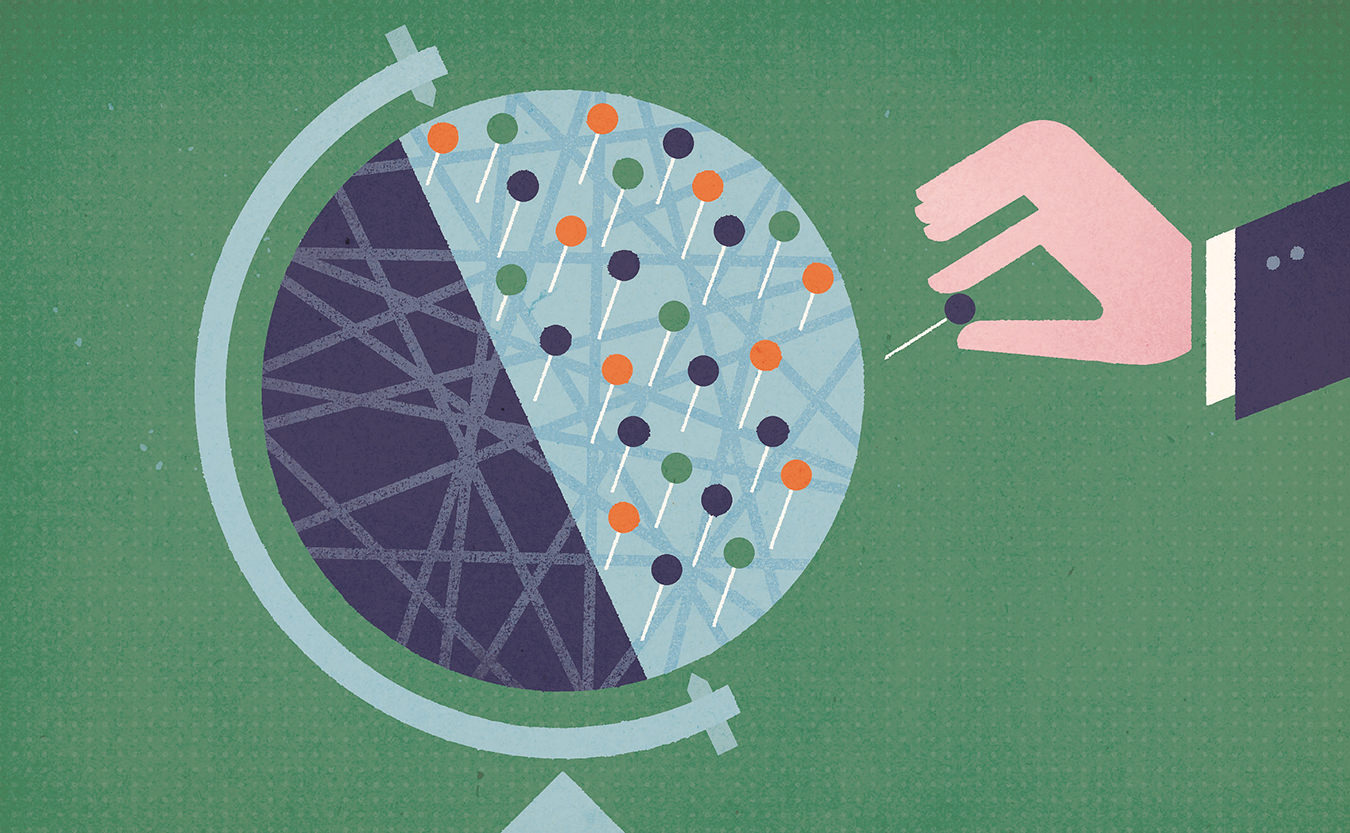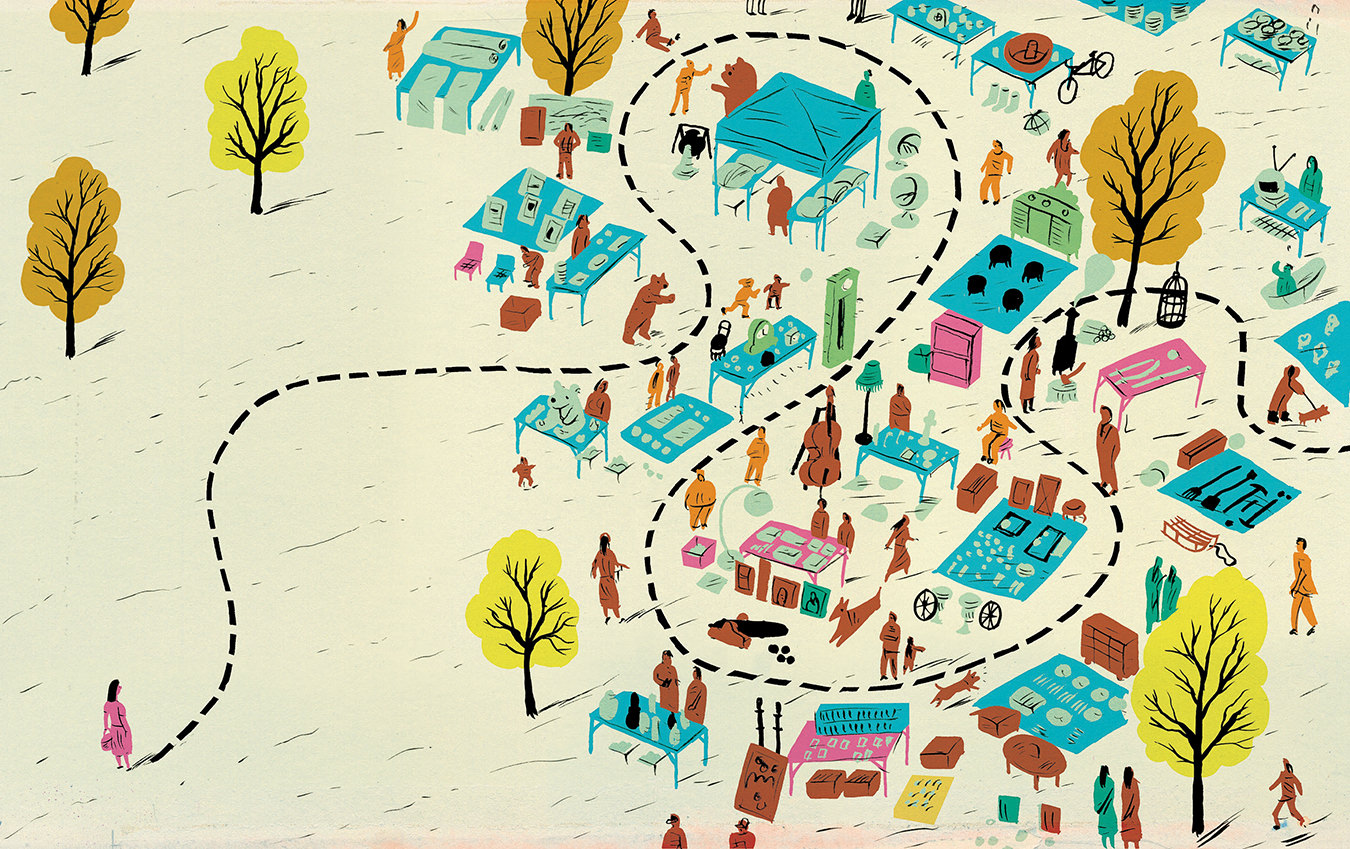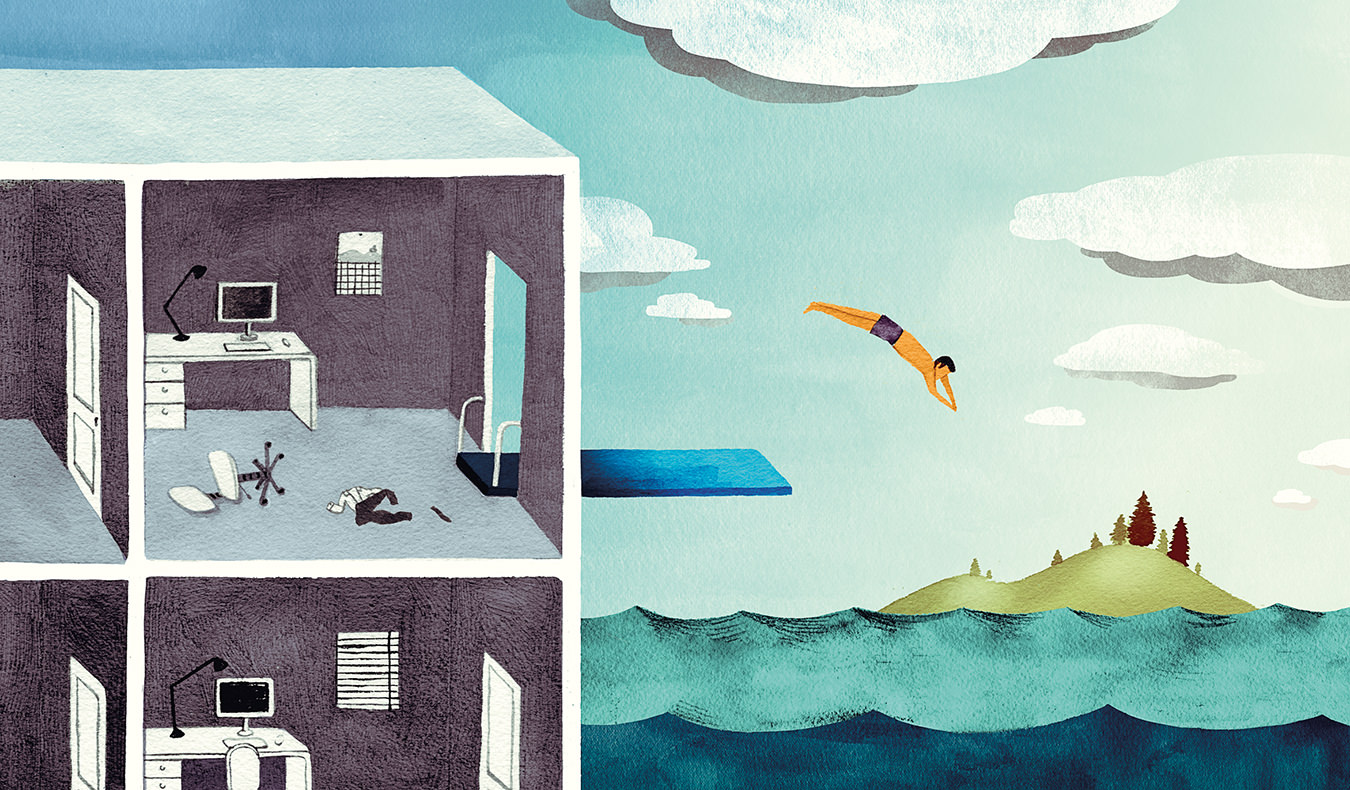Hustle vs. Hustle
The rise of a new work culture.

Faces have long loomed large: on buses and billboards and in movie theatres. Now they’re on screens in the palms of our hands. It is clear that fame is changing—influence for the sake of influence is becoming a business model as a result of social media, where fortunes are made by commodifying personalities and popularity is birthed by algorithms.
In order to achieve fame, we need to hustle, we are told. For the uninitiated, hustling is the upkeep of a main job and smaller additional ones (side hustles), tasks, contacts, and skills, all revolving around a projected media persona. It creates a new sort of fame that encapsulates professional identity, work, and lifestyle. Through the hustle, the individual becomes a sort of brand and aspires to influence others to do the same. The influencer, a new take on the old concept of celebrity, is lucky enough to inhabit 28-hour days, it seems. For those of us with just 24 hours in a day, watching this glamorous hustle, reality can be hard.
I don’t want to harp too much on the world of Internet fame, since many artists, journalists, and entrepreneurs rely on it to promote their and others’ work, and this isn’t another finger-wagging, good-ole-days condemnation of Internet tech. Still, many are uneasy when considering the models of the influencer and hustler. Especially when the hustle is presented as a hip, new alternative to older business models—where you show up in the morning, and go home at night, and the boundary between work and home life is clearly defined. However, it is difficult to say the traditional office model is better; the problems of insincerity and imbalance lie as much in the shortcomings of the 9-to-5 (how many movies have we seen in which the protagonist breaks out of his or her stuffy, 9-to-5 cubicle?) as with the paralyzing amount of time people spend promoting themselves on social media. But by presenting fabricated, small-scale versions of lifestyles that were previously unattainable and reserved for superstars, everyday people have escaped the 9-to-5 and now work 24/7, their dinners, movie nights, and vacations co-opted by work.
Influence for the sake of influence is becoming a business model as a result of social media, where fortunes are made by commodifying personalities and popularity is birthed by algorithms.
At an extreme are the stars who promote a lifestyle based on the hustle. The emptiness of the hustle becomes even more clear when you think of the recent failure of massive companies like WeWork, the quasi real-estate company that provided co-working spaces and services to technology startups (and whose name sounds more like a Soviet daytime television show than a glorified real-estate firm). The former CEO, Adam Neumann, hustled. He worked many angles, got ahead of the competition, and promoted the company based on his charisma and ability to exude the hustling work ethic prized by leaders in the tech industry.
WeWork faltered because it was based on the idea of a work culture and not an actual one. Neumann made millions and now the company and many of its employees are left in the lurch. Of course, reckless investment is also often a contributing factor in cases of overvaluation, but cases such as WeWork certainly peel back the veneer of hustle culture. If only for a moment, everyone can see how substantiality takes a back seat to hype.
After all, what are we really saying when we talk about hustling? Do we mean people are rushing to do a job, giving it their all? Or is it the other meaning of the word—that they are tricking themselves and others? Is it possible that in trying to hustle our way past the 9-to-5, we’ve ended up hustling ourselves? 
________
Never miss a story. Sign up for NUVO’s weekly newsletter here.




